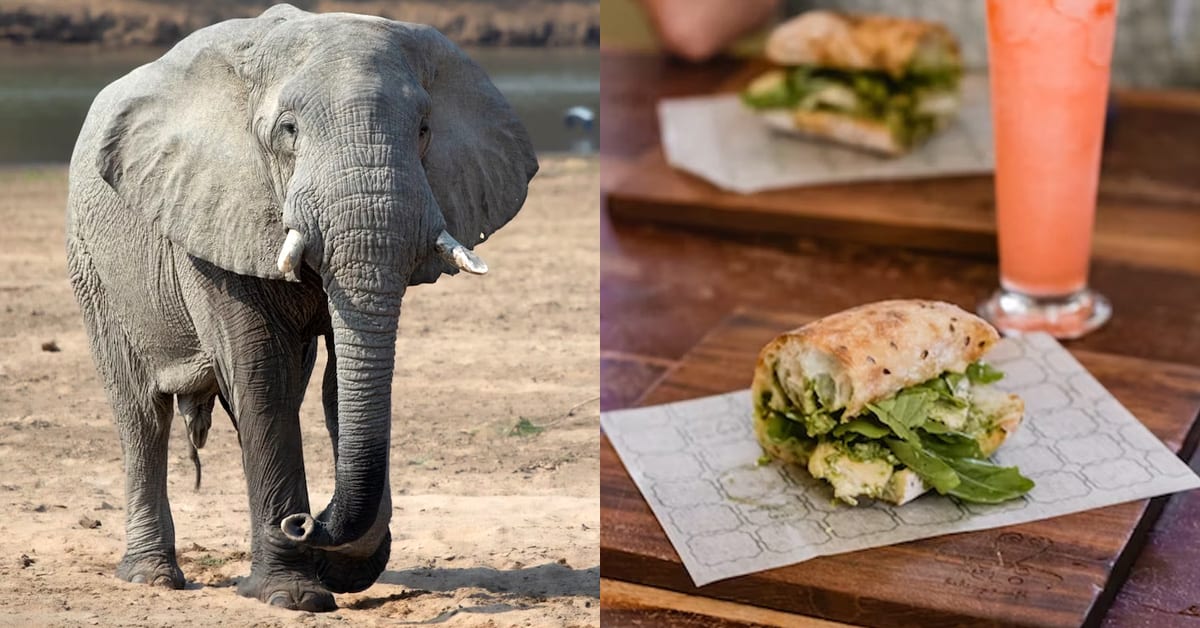Central African cuisine is a unique blend of African, European, and Arabic influences. The region is known for its rich and diverse culinary traditions, which vary from country to country.
Central African food is characterized by its use of local ingredients such as cassava, plantains, yams, and peanuts, as well as a variety of meats including beef, goat, and chicken. Spices and herbs are also an essential part of Central African cuisine, with popular seasonings including ginger, garlic, and chili peppers.
Central African cuisine halal or not?
Is Central African food halal?
Central African Republic is a predominantly Christian country, and therefore, pork is a common ingredient in their cuisine.
Muslims do not consume pork, so it is important for them to inquire about the ingredients and preparation methods of the dishes before consuming them.
Some dishes may contain alcohol or other non-halal ingredients, so it is important to exercise caution and ask questions before consuming any food.
What kind of food do Central African eat?
The Central African cuisine is diverse and varies depending on the region and ethnic group. However, some common foods include:
- Cassava: A starchy root vegetable that is a staple food in Central Africa. It is often boiled, mashed, or fried.
- Plantains: A type of banana that is cooked and served as a side dish or used in stews.
- Rice: A popular grain that is often served with stews or sauces.
- Peanut sauce: A thick sauce made from ground peanuts, tomatoes, and spices. It is often served with meat or vegetables.
- Meat: Beef, chicken, goat, and fish are commonly eaten in Central Africa. They are often stewed or grilled.
- Fufu: A starchy dough made from cassava, yams, or plantains. It is often used as a utensil to scoop up stews or sauces.
- Okra: A vegetable that is often used in stews and soups.
- Beans: Black-eyed peas, kidney beans, and other types of beans are commonly eaten in Central Africa. They are often cooked with vegetables and spices.
- Palm oil: A red oil made from the fruit of the oil palm tree. It is used in cooking and as a condiment.
- Spices: Central African cuisine is known for its use of spices such as ginger, garlic, and chili peppers.
How can you tell if the food is halal in Central African Republic?
In general, to determine if food is halal in Central African Republic, you can look for halal certification from a recognized Islamic organization or ask the restaurant or food supplier if their products are halal.
You can also check the ingredients list and ensure that they do not contain any non-halal ingredients such as pork or alcohol.
Is it hard to find halal food in Central African Republic?
The majority of the population is Christian, and there are very few Muslims in the country. Therefore, halal food is not widely available, and it may be challenging to find restaurants or stores that offer halal options.
However, some international hotels and restaurants in the capital city of Bangui may offer halal food. It is recommended to inquire with locals or do research before traveling to Central African Republic.
Is Central African food healthy?
Central African cuisine is generally based on starchy foods such as cassava, yams, and plantains, as well as vegetables, fruits, and meats such as fish, chicken, and goat.
While some dishes may be high in fat and salt, the use of fresh ingredients and traditional cooking methods can make Central African food healthy and nutritious.
It is important to note that a balanced and varied diet is key to maintaining good health.
What is Central African food similar to?
Central African food is similar to other African cuisines, with a focus on starchy staples such as cassava, yams, and plantains, as well as meats such as goat, chicken, and fish.
It also incorporates a variety of spices and herbs, including ginger, garlic, and chili peppers.
Some dishes may be similar to those found in neighboring countries such as Cameroon, Chad, and the Democratic Republic of Congo.
Steps to find halal food in Central African Republic
Here are some general steps that can be taken to find halal food in Central African Republic:
- Look for Muslim-owned restaurants or food stalls: Muslim-owned restaurants or food stalls are more likely to serve halal food. You can ask the staff if the food is halal or not.
- Check for halal certification: Some restaurants or food manufacturers may have halal certification from a recognized halal certification body. You can look for such certification on the packaging or ask the staff if they have it.
- Ask locals: Locals can be a great source of information about where to find halal food. You can ask your hotel staff or people you meet during your travels.
- Use halal food apps: There are several halal food apps available that can help you find halal food in Central African Republic. Some popular ones include HalalTrip, Zabihah, and Halal Food Finder.
- Cook your own food: If you are unable to find halal food, you can always cook your own food using halal ingredients. You can buy halal meat and other ingredients from local markets or supermarkets.

